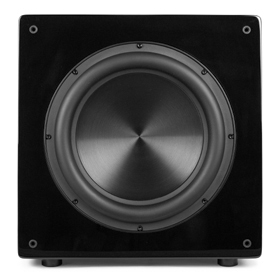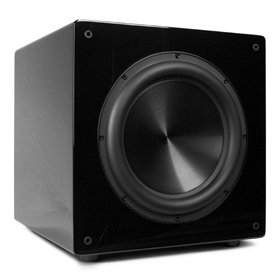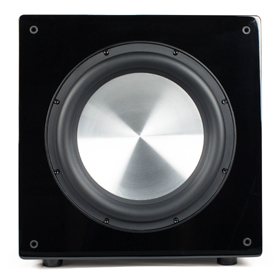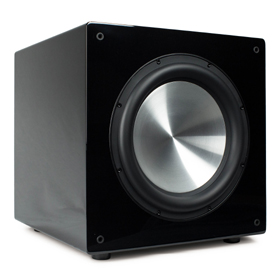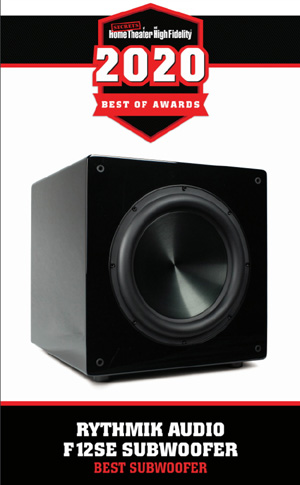| F12SE Direct Servo subwoofer - Signature Edition | |
| 12" sealed audiophile sub |
|
||
|
|
F12SE has received Secret of HT and HF 2020 Best Subwoofer Award. Click the award for the article. F12SE is F12 with gloss finish. All other components and amplifier options are same as regular F12. The standard amplifier is A370XLR3. (370WRMS with both RCA and XLR inputs). The quickguide of the A370XLR3 amplifier for sealed subs can be found here . A370XLR3 amps do not have high pass filter RCA outputs. But it does have dedicated LFE inputs allowing for easy integration of a 2-ch-plus-HT system setup. A370PEQ3 has both speaker level inputs and LFE/LINE RCA inputs for those with AV receivers. A370PEQ amplifiers are available for those who still need high pass filter (or HPF) RCA outputs. The response curves with various extension frequency/damping combinations of both amplifiers can be found in our EQ page. Manual for each amplifier choice is available below in documentation section. Black cones are made of anodized aluminum. Silver cone driver is available for $50 extra. Price includes shipping to 48 US continental states only. Shipping to other region or country should inquire us for actual cost. The F12SE sub comes with screw-in rubber feet. Spike feet are available as add-on for $25 with no exta shipping cost. The standard amplifier is A370XLR3. Our speaker level inputs are only compatible with power amplifiers having single ended outputs with black lead output labelled as "COM", "GND", or "Ground". Wyre4sound power amplifiers and others with differential outputs are not compatible. These amps need an XLR type 3-wire (one positive, one negative, and one ground) for safe operation. Using Y-splitter on input connection increases the subwoofer gain by 6db. High efficiency horn speakers (105db/Wm and above) may require custom modification for "gain matching" of the volume control knob (not to be mistaken as sub not keeping up with horn speakers) when this connection method is not option (eg, single sub acception both L and R inputs).To summarize, customers who need to consider higher gain are those with all these conditions: 1) has high efficiency horn speakers, 2) has no AVR or pre-processor, and 3) cannot use Y-splitter to connect to multiple inputs on a sub to increase gain by 6db. Please select "High gain" option in the order. Efficiency of newer Klipsch horn speakers are over-rated by 6db and not an issue for gain matching. Please inquiry us when using our subs with horn speakers if you are not sure what to do. Documentation: The warehouse will be closed from Mar 2 to Mar 16. No shipping during this period of time.
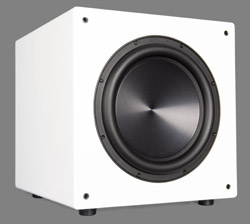
Direct Servo Technology You may have heard about other servo subwoofers which are generally well regarded for their accuracy. It is a well established technology, most often based around an accelerometer which measures cone movement. Our Direct Servo technology has significant advantages over other servo technologies. We use a sensing servo coil which acts like a microphone which compares the original signal to what the subwoofer is actually reproducing. The signal is then corrected instantly to compensate for any differences. Once you understand the concept, you may wonder like we do why anyone would make a subwoofer any other way. All our subwoofers use our patented Direct Servo technology. The most significant benefit is that it provides high end performance at an affordable price. Conventional subwoofers require heavy drivers in order to achieve deep bass extension. Direct Servo allows the use of a lighter driver which is more efficient so that a very high powered amplifier is not necessary. At the same time, Direct Servo reduces detrimental memory effects which detracts from the realism of reproduction. Unlike many other non-servo subs which exhibit two-mode bass: either with too much bass when volume is up or with too little or no bass when the volume is down, our higher resolution subwoofers allow customers to listen at lower level and yet able to hear details in the bass in a wide range of volume level. In other words, the bass is simply more natural instead of constantly drawing our attention that we have a subwoofer in the system. Some of the benefits of Direct Servo include:
Many audiophiles aren't aware of all of these issues, but we believe they are critical to the design of an accurate subwoofer. While it's not necessary to understand them to enjoy accurate bass, for those who wish to understand how we do it, we have articles to describe our unique approach. Read more about Direct Servo in our technology section. View animation demonstrating how Direct Servo works View animation demonstrating the reduction of bass re-radiation Better value through intelligent design Many of our customers marvel that we are able to produce such exceptional subwoofers at such a low price. One Direct Servo technology makes it possible, allowing us to get the most out of a 12" driver without the need for kilowatts of power. Don't be fooled into thinking that other more expensive subwoofers with much more powerful amplifiers will offer more output. The output of a subwoofer is determined by how much air the driver can displace, not the power rating of the amplifier. We could supply a more powerful amplifier, but there would be no increase in output, only extra cost. To understand further how this works, you may wish to read our article on smart Q.
Continue to Options & Features |
| Home | Products | |
